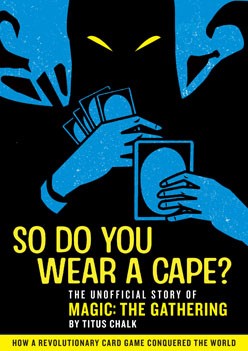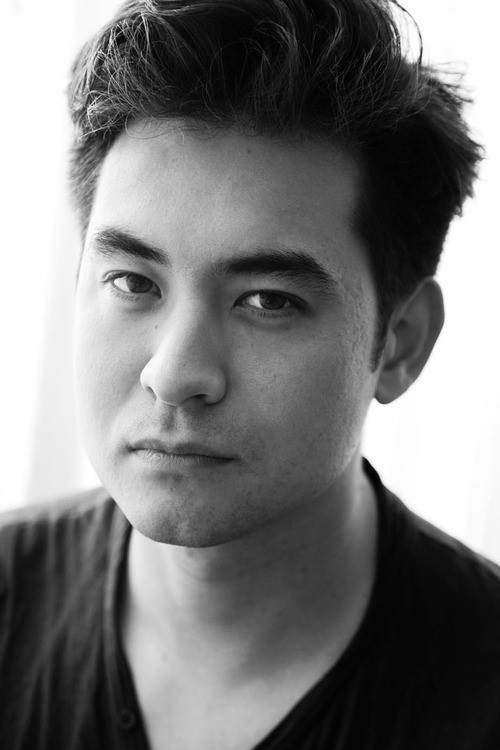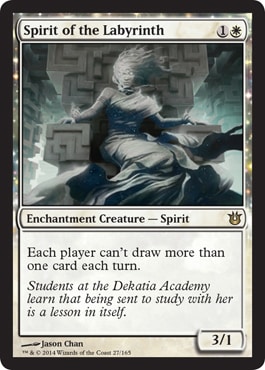
Sen Triplets by Greg Staples
My first exposure to Titus Chalk was just after I’d started participating in the Magic community but before I was at all an established writer. Titus wrote one of the year’s best pieces, “Women and Magic: The Game’s Lost Tribe” that really helped kick-start the movement for more diversity and inclusive standards within the MTG community.
“If I wanted to be around more girls, I’d go shop the Sunday sale at Victoria’s Secret or something,” I wrote in the comments of that article. And I was serious.
Yes, I’m deeply ashamed of one of my earliest responses to another writer’s work in the community. Why did I have this reaction? Because I was so afraid that calling for an influx of females to MTG would lead to all the nasty, catty, blonde cheerleader-picking-on-nerdy-Asian-girl experiences that I’d left behind in middle school. I was terrified that, somehow, the very welcoming community of “nice guys” that I’d only recently become a part of would suddenly explode into a remake of Mean Girls or Carrie. Can you believe that? I am astounded that I was so unaware of my own issues with other women and that I could be so ignorantly unnerved as to express myself in a super-bitchy, misogynistic way. I apologize.

Cry of Contrition by Daren Bader
How much we learn. Every woman I’ve had the privilege of knowing in this community has been nothing less than kind, open-minded, sassy, and smart—as have the majority of men in the community! Looking back, I realize if I’d known more like-minded women in school, girls who loved fantasy and games, who weren’t cattily competitive, and who weren’t threatened by my grades or ethnicity, I wouldn’t have been so defensive when I read Titus’s article.
Titus, in his new book, describes in one chapter how he willingly joined in bullying another Magic player to make sure he himself wasn’t a victim of his clique’s aggression. He too had to have a reckoning when he ran into this young man years later. It can happen to all of us. How easy it is to slip into being fearful, becoming a bully rather than admitting we’re scared of simply not being liked or accepted. I hope many of you out there have similar stories of changing your outlook for the better or of seeing the change happen in friends or other players at your local game store.
That Lost Tribe article of Titus’s helped improve my perspective. Despite my hasty and shallow comment, I mulled over the words and the issue he articulated for months after. It helped inform my involvement in the community at large, and it made me think about what I wanted to represent.

This is my long-form way of saying I think Titus is a writer who’s always worth a bit of your time. I’ll have a full review of his new book, So Do You Wear a Cape: The Unofficial Story of Magic: The Gathering (phew . . . that is . . . a mouthful) in the next weeks, so keep an eye out for that if you’re the type who likes to look before you leap. Or like me to look before you, you know, make that $6 commitment . . .
This week, I’m happy to share Titus’s responses to the seven questions I slung at him. Even if you don’t buy the book, I hope you enjoy getting to know one of game’s best Community Writers (I do mean that in the capitalized sense). If you’re curious about his work, check out sodoyouwearacape.com and this sample chapter (a great look into the Vorthos chaos of early Magic art and the artists behind it!).

Titus Chalk is a freelance journalist based in Berlin, Germany. He writes and broadcasts about sport, culture, and games for outlets including Deutsche Welle, Tagesspiegel, and FourFourTwo. He has been playing Magic since Revised Edition and even occasionally wins. He is on the wrong side of thirty, but coping, thank you.
1. What was your "Aha!” moment that really catalyzed this book project? What made you commit to taking the leap, to seeing it through? It's very epic and ambitious in scope.
I think, rather than one big bang of inspiration, this was more of multi-stage rocket that took a few goes to explode into life. Really, the first seeds of the idea were planted one lunchtime at my old job in London. I happened to be walking to the shops to buy a sandwich with the editor of a football magazine I write for, and we made polite chitchat about our weekends. I explained that I had played in a Magic tournament and fell back on the reflex of saying, "I know it sounds really geeky, but . . . " before reeling off a list of things that I thought made the game fascinating. My colleague's immediate response was, "Have you written a feature about this?" And that was the first time the penny dropped: Hey, there's something significant here that I can tell a story about, even to (or especially to) people who don't know the game.
Not long after, in 2010, I upped sticks to Berlin, wanting a change of a scene and to give the freelance life a shot. In so doing, I was forced to ask myself what I really wanted to write about and how I could use this "freedom" that freelancing gave to achieve something more meaningful to me than writing just about sport—really my mainstay as a journalist. I realized instinctively that the Magic story I had been thinking about could be more than just a feature and become a whole book. I even scribbled down a few pages that made their way into the book. But really, I wasn't ready to take it on—I wasn't in a position professionally, financially, or as a writer, where I knew I could tackle it. I had to pay the bills, and all my time went into chasing the next sports-writing gig. At the same time, being freelance, I realized I was growing as a narrator. Compared to being staff on a magazine or at a publisher, where it falls to you to fill all the gaps in the blanks as quickly as possible for the next issue, being freelance allows you to have a voice of your own and indulge your storytelling instincts a little more. Ultimately, it's that voice that you're selling—and it needs time to develop, or at least it did in my case.
Then, finally, toward the end of 2012, things started to fall into place. I had been working in London for a couple of weeks reporting from the Olympics, and I came back feeling energized and determined to do something—anything—that I really wanted to do. I also got to know a couple of people in book publishing while I was back in London, who thought my idea might be a good one. And, when I returned to Berlin, I started working regular shifts every weekend at a TV station, which took the pressure off me financially. By the end of the year, all these things seemed to fall in place—and I realized that with Magic's twentieth anniversary around the corner, it was now or never to write a book about it. I pitched it to a couple of the publishers I had contacts at—but really, it was far too short a timescale for traditional publishing. So I bit the bullet and decided to do it all off my own back, purely because I knew the story needed telling—and I thought I might be the guy to do it. I started planning and writing and felt this light come on in my head, like I knew how to do it, to structure it (more or less, I'm not saying it's perfect)—that this was a narrative and that I had learned to narrate over the past few years well enough to make it work. Then, the first few interviews happened, and suddenly, it was all stations go. It wasn't plain sailing by any stretch of the imagination, and my self-belief really roller-coastered as I was working on it, but from one casual lunchtime chat, a book was eventually born.

Agent of the Fates sketch by Matt Stewart
2. What did you find the most challenging aspect of writing this book? Was there anything you'd go back and do differently?
I'll answer the second part first: Yes, there are almost certainly things I would write differently, but I think that's true of anything you do write. I don't feel that I can handle looking at the manuscript right now, but I will probably revise it at some point in the near future and probably cringe at certain things I've written—I think that's just the nature of doing anything creative. Some people will work tirelessly on a piece of art until every little detail is perfect, before he or she finally releases it to the public. Others—I think me included—are more worried that they may never release it if they try to make everything perfect; they just want to get it out there and learn from their mistakes. And, because I felt that I wanted desperately to get the book out in the anniversary year (which I just about managed), there came a point when I really had to just race through the writing and researching and get the damn thing done. In retrospect, I don't think the tie-in with the anniversary year is all that important—but it was a huge spur to me and kept me focused, cranking out two thousand words a day in the local library. Otherwise, I would have dawdled and never got it out there to be read.
As to challenges, there were almost certainly a few—but many of them were internal: overcoming doubts I had at pretty much every stage, dealing with the stress of working seven days a week almost an entire year, and making up the rules as I was going along. That sort of thing. In terms of content, there are one or two people I couldn't track down or whom I couldn't convince to be interviewed for the book, but there're not any huge gaping holes in that respect. Once Richard Garfield had agreed to speak with me, I felt that whatever happened, I had got to the heart of things and that the book would stand on its own two feet.
More challenges came really after writing the book—and I felt pretty keenly the difference between self- and traditional publishing. I've probably said this elsewhere (on Twitter probably!), but if writing a book is like a marathon, self-publishing is an iron man triathlon. After the writing comes the production. After that comes the marketing. And it is really a hell of lot to bite off in one go. I have some publishing expertise, thankfully, and contacts to do design and editing and so on—but still, it has been a mammoth task, and really, it feels as though the third event of the triathlon is just starting! Talking about the book, convincing people to spend their hard-earned cash on it, and getting it into the hands of all the players I believe might enjoy it is a whole new ball game!

Original sketch for Blood Artist by Johannes Voss
3. How long would you say it took you to complete the project, start to finish?
Apart from the early false starts, once I had decided to really go for it, it took a year to research, write, produce, and publish. In many ways, I wish I had had a little more time to polish the actual writing, but it was also good to work very intensely on it, with a clear goal in mind and to also have a cutoff point where enough was enough and it had to simply be finished.
4. Any news on getting it into paperback form?
I would dearly love to get the book out in print form, particularly for nonplayers whom I hope would enjoy the book. Publishing a paper edition is not something I'm going to undertake alone though. I would like to find an agent to work with this year and see if we can get it in front of a publisher—but certainly don't hold your breath for a print edition just yet.
5. What’s your most recent Magic-related purchase?
I just preordered a play set of Spirit of the Labyrinths—and booked my flight and hotel for Grand Paris. I'm an Eternal player at heart, so in both cases, I think it's money well-spent!
6. What is your favorite Magic celebrity brush-with-fame moment from your interview and research process?
Wow, that's tough. First, I have to say that everyone I spoke to was extremely helpful and generous with his or her time—and it was very gratifying to sense from some people mentioned in the book that they also thought that this was a story worth telling. That really helped motivate me to keep going when things got difficult.
I guess my favorite moment changes daily, when I look back at the whole process. Honestly, there were a lot of moments I got off the phone with someone and just punched the air because it felt so good to have heard his or her story, and I knew Magic players were going to be as excited as I was to hear it. Perhaps in that sense—although I didn't punch the air afterward because it wasn't that kind of chat—my favorite interview was with Mark Justice. Really, he was a guy who was synonymous with the game when the Pro Tour sprung into life, the first hero of the professional era. And yet, he had a very troubled personal life, dropped out of the game, and hadn't done an interview for about fifteen years.
For whatever reason, he trusted me, and we seemed to click when we talked on the phone. He was incredibly candid about his time in the game—as well as on his life afterward, and it was wonderful to get a sense of just how hugely significant the game had been to him. Ultimately, he has gone on to change his life for the better, and I'm incredibly happy for him. I just hope one day he might be enticed to pick up some cards again and enjoy something that used to be a huge part of his life.

Mark Justice (right), 1995. Wizards of the Coast.
7. Do you have any specific future projects in the works?
For now, it feels that life is very much up in the air, and I have no idea what my future projects are. In the short term, real life is calling, and I'm hoping to do make it to the World Cup in Brazil to do some reporting for German TV. As to writing, well, a lot will depend what happens with So Do You Wear A Cape? I hope people read it, enjoy it, talk about it, and want to hear more from me. And then we'll see what happens! I can't see myself writing another book about Magic, but maybe I could do a few articles here and there.
Otherwise, I just got back from Warsaw, where I spent a couple of weeks writing for pleasure—sitting in cafes, scribbling down ideas and observations for the joy of making marks on paper with a pen. And it did me the world of good. I have the tiniest seed of an idea for some fiction, but just like writing this book, I suspect it will take a few false starts and a lot of making it up as I go along before it becomes a novel. Ultimately, writing fiction is my dream—but I'm still somewhat terrified by the enormity of it all. I need a deadline, a library, a regular supply of Bratwurst, and the occasional kick up the backside. If it worked once, it can work again right?
Till next time, may Magic be your beer-n-brat-fueled epiphany.
-MJ



























